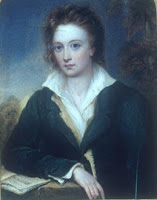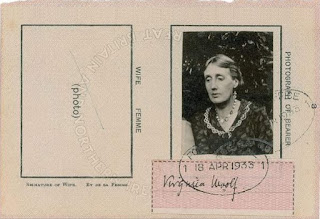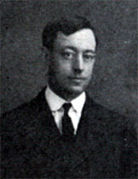SHOOTING OVER A BULL-DOG.
One morning in April, 1857, I left Pavia for Piacenza in, a little one-horse carriage, driven by a dwarf called Ferdinand Hercules Goodcomfort. The roads were heavy from rain, and all the saints in the Italian calendar were invoked to get the old white animal in the shafts along. When we arrived at the banks of the Po, the ferryboat was of course, on the opposite side. Ferdinand Hercules divested himself of his great blue cloak lined with green baize, and
commenced a noise to attract the ferrymen, a noise like the yelling of the first-mate of a timber ship that is being loaded with cargo. When, perfectly black in the face and speechless, he sat down in despair, and I had to take his place. After three quarters of an hour of this pleasant occupation, the ferrymen came slowly out of a small hut, and pretending that they had just heard us, proceeded to bring the boat over the river. Evidently, the white horse did not inspire them with much confidence as to a buonamano.
Ferdinand Hercules, having by this time recovered the use of his lungs, commenced cursing the people very freely and went on doing so until we arrived at St. Giovanni Castello, where we stopped to bait the white horse and breakfast. The house was half farm-house, half inn, of the sort common in Italy in out-of-the-way places.
In a large vaulted kitchen, which served for dining room and drawing-room combined, we got a verygood meal of Milanese cutlets, omelette well powdered with onions, strachino cheese, and country wine. As I was finishing breakfast, I heard an odd cracking noise coming down the stairs, the cause of which shortly appeared in the shape of the landlord of the place, clad in full sporting costume - a velveteen jacket and waistcoat; thick gamboge-coloured leather breeches and gaiters (the former the cause of the noise), a carnassière with muzzle and dog whip attached to it ; two powder horns; two shot belts; a blue cotton umbrella, about the size of those used for carriages, in one hand ; and a single-barrelled, brass mounted, flint-locked gun in the other. He announced his departure for the chase, and invited me to accompany him. On my stating that my time was limited, he said that it was of no consequence, as the game was in close proximity to the house, and, his first beat being by the high-road, my carriage could pick me up without loss of time. Having then loaded his gun with about two ounces of powder, a sheet of brown paper, and plenty of No. 3 shot, he emerged from the kitchen, and, blowing a shrill whistle, desired one of his men to unchain Bobbi. I remarked that at the first sound of the whistle, a series of fat pigs comfortably reposing in the central mud of the farmyard,
got up and retreated to a far corner, forming themselves into a hollow square, ready for emergencies. A powerful bark in the distance announced the arrival of a dog of some sort; when, almost immediately a great saffron coloured bulldog, with brindled legs, and the most repulsive set ot features I ever saw, came bounding into the place. He had on a collar well furnished with spikes and bells. The landlord assured me that he was molto bravo, and that of pure breed used by all English lords when at the chase. The animal at once gave evidence of his sporting qualities by chasing all the ducks and chickens into a pond, out of which the latter had to be got with poles. Being then pacified by a block of meat, he consented to accompany us to fulfil his duties.
The game did lie close to the house; for we had hardly entered the first field, when I saw my friend the landlord stand still and look about with a puzzled appearance. "I hear him," he said, "but I cannot see him." Presently he started, threw out his left leg, got his body well fixed in the muddy ground, and slowly brought his gun to the shoulder.
After a most deliberate aim, the gun went off, with a prolonged fizz, like a damp squib, and the game - a small hedge-sparrow distant twenty yards - felt to the ground. Bobbi at once rushed in and began to eat him; nothing but incessant showers of stones would induce him to relinquish his prey, which he did at last, growling fiercely as he retreated. The landlord then stepped in and recovered the beak, tail, and one leg of the bird, which he put carefully away in the carnassière. He, then said that Bobbi's conduct was quite insopportable, and sent in for more meat, with a view to putting on the muzzle.
A long piece of bullock's pipe being furnished to him, he said to me, "Caro Signore, oblige me by muzzling him while I load my gun." I did not much fancy this job ; but getting behind the dog with the muzzle in both hands, just as he had finished the last three inches of meat, I slipped it over his head, and I believe (from the gurgling noise) buckled the meat in his throat. This made him very sulky, und we were in full cry after a blackbird, when two cows yoked to a small cart turned the corner of the road, a fat man asleep inside the vehicle. Bobbi at once rushed at the cows, turned them short round and the whole concern was upset into the ditch.
Ferdinand Hercules arriving with the carriage, we succeeded in getting the cart righted ; the fat man gave Bobbi a tremendous crack on the head with his goad which sent him yelping home, and abused us for owning such a vicious brute. The real owner was far away in the distance, having fired ten successive shots at the blackbird without effect.
 "We will go to Genoa," said Megalena. "We will, my fair one. There, entirely devoted to each other, we will defy the darts of misery."
"We will go to Genoa," said Megalena. "We will, my fair one. There, entirely devoted to each other, we will defy the darts of misery."






